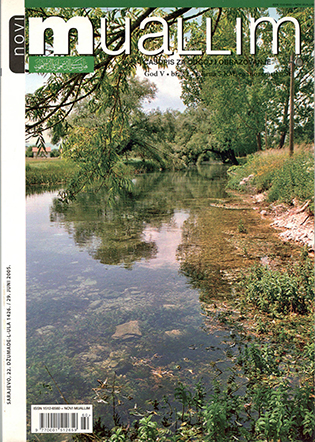THE STRASBOURG COURT ON TURKEY AND HUMAN RIGHT TO FREEDOM OF RELIGION OR BELIEF
CRITICAL OVERVIEW IN THE OF THE RECENT RULING IN THE CASE OF OF LEYLA SAHIN VS. TURKEY
DOI:
https://doi.org/10.26340/muallim.v6i22.1559Abstract
The issue in the case Shahin vs.Turkeyis whether a Muslim student at the state university inTurkeyhas a human right to wear hijab at the university if she wishes so. The European court for human rights has ruled that ban on wearing hijab at the university represents interference of the state into the right of religious expression, but also that this measure was aimed at legitimately protecting the rights and freedoms of other and protecting the public order. The court has concluded that the intervention of the state in the Shahin case was based on two principles: secularism and gender equality. The court has also accepted that protecting the secular principles (Kamalistic laicism, in fact) can be viewed as necessary in protecting the democratic system inTurkey. Imposition of limitations on freedom in this area can, therefore, be viewed as fulfilling the urgent societal needs that do not breach the Article 9 of the European Convention on Human Rights.
The court rulings regarding the legitimate state limitations on freedom of religious or belief expression in the Shahin case are, to say the least, problematic. It is very hard to accept that measures against hijab-wearing students were aimed at preserving the legitimate rights and freedoms of others and preserving the public order. It is strange that a limitation on pluralism in dressing has been represented by the Court as the defense of “pluralism”. It is also unclear how this Kamalistic hijab ban promotes gender equality for hundreds of students and scientists that are thereby excluded from university education and teaching posts, as well as for tens of thousands of other women that are thereby prevented from obtaining a state employment. Surely, many expressions of religion and beliefs should be limited, but the arguments presented by the Court in this case are not convincing. Since Leial Shahin entered an appeal with the Supreme Council of the Court, this case still remains open.
Downloads
Published
How to Cite
Issue
Section
License
Naknada:
a. Časopis ne naplaćuje naknadu za obradu članaka (APC) i naknadu za podnošenje članaka.
Autori koji objavljuju u ovom časopisu pristaju na sljedeće uvijete:
- Autori zadržavaju autorska prava i pružaju časopisu pravo prvog objavljivanja, pri čemu će rad jednu godinu po objavljivanju biti podložan licenci Creative Commons imenovanje koja omogućuje drugima da dijele rad uz uvijet navođenja autorstva i izvornog objavljivanja u ovom časopisu.
- Autori mogu izraditi zasebne, ugovorne aranžmane za ne-ekskluzivnu distribuciju rada objavljenog u časopisu (npr. postavljanje u institucionalni repozitorij ili objavljivanje u knjizi), uz navođenje da je rad izvorno objavljen u ovom časopisu.


